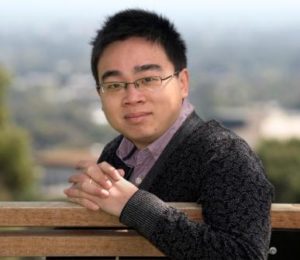 Factors influencing mature-aged men to stay in the workforce will be investigated as part of new study by Flinders University researcher Rong Zhu.
Factors influencing mature-aged men to stay in the workforce will be investigated as part of new study by Flinders University researcher Rong Zhu.
Dr Zhu, based in Flinders National Institute of Labour Studies, has received an Early Career Research Fellowship from the National Centre for Vocational Education Research to document the trends in labour force participation of Australian men aged 55 to 64.
As part of his one-year study, Dr Zhu will examine how a wife’s decision to stay in the workforce influences their husband’s own participation, as well as the role of education, age structure and other socio-economic variables in driving the dynamics of labour force rates among mature-aged men.
The research will draw on historical data collected from the Household, Income and Labour Dynamics in Australia (HILDA) Survey from 2001 to 2011, in which more than 600 mature-aged men and their spouses were surveyed each year.
Dr Zhu said preliminary findings showed spousal participation was a main driver influencing mature-aged men’s workforce participation.
“Husbands are more responsive to their wife’s decision,” Dr Zhu said.
“If the wife works there’s still family income coming in so my theory is the husband will be less likely to work, and if the husband and wife want to spend more time together later in life they might be more inclined to work similar hours, which is a shared-leisure effect,” he said.
“My previous analysis has also shown that if these men are more educated then they’re more likely to participate in the workforce, even if they have reached the retirement age.”
With an increasingly ageing population, Dr Zhu said it was important to investigate the characteristics of the Australian workforce and the factors influencing participation.
“In the past 10 years, labour force participation rates for men have increased from 62 per cent to 73 per cent and for wives it’s gone from 50 per cent to 63 per cent.
“This is a common pattern in developed countries and it’s important to understand what keeps men in the workforce, particularly as we face an ageing population and skills shortage.
“In terms of economic growth it’s certainly an advantage to have older skilled workers so I hope my research will provide policymakers with evidence about workforce development in the aim of attracting and retaining these people.”
Results of the study are expected to be released in July 2013.

